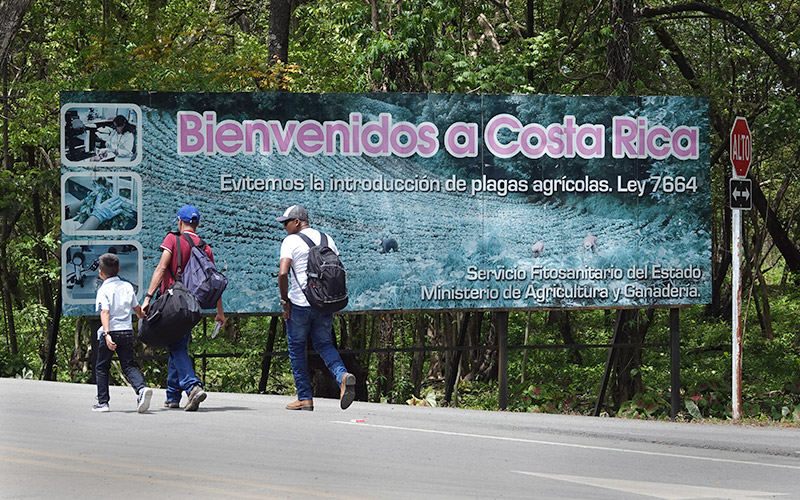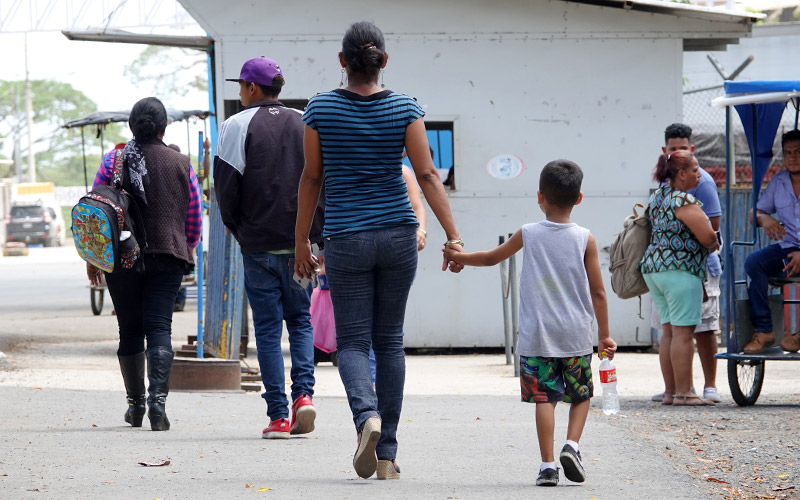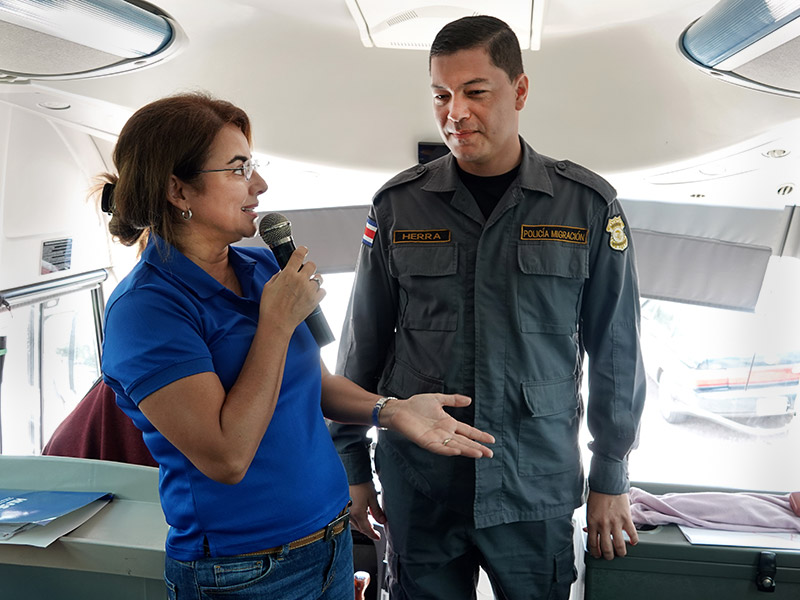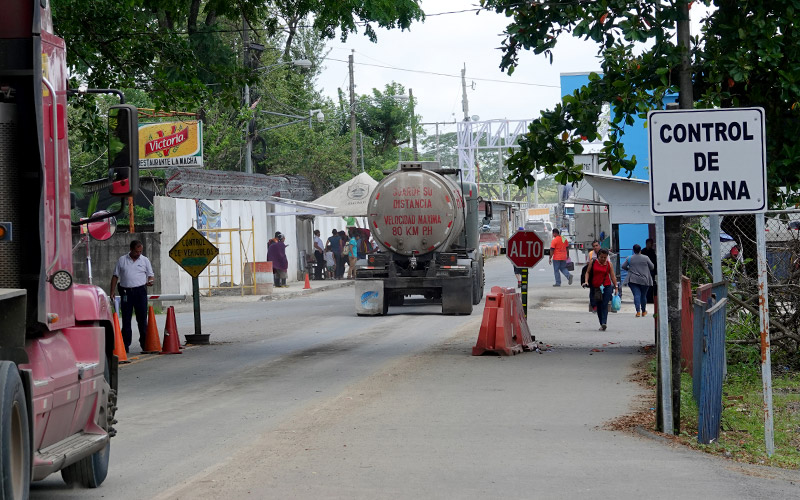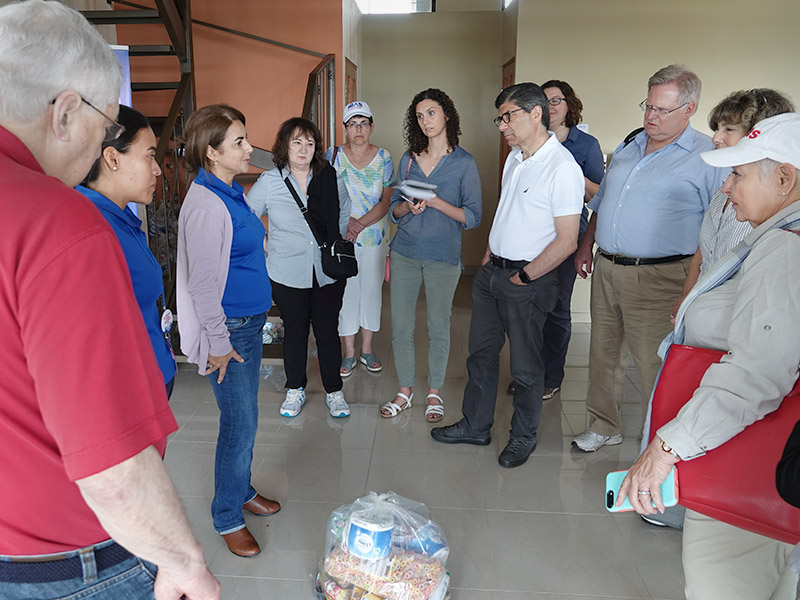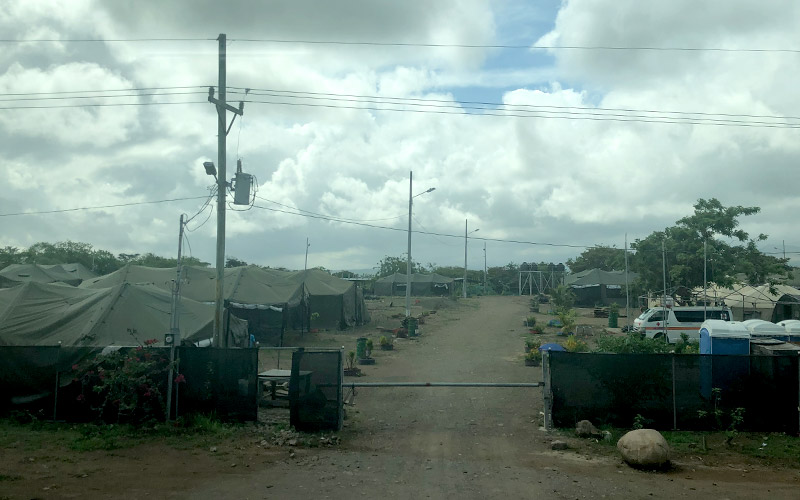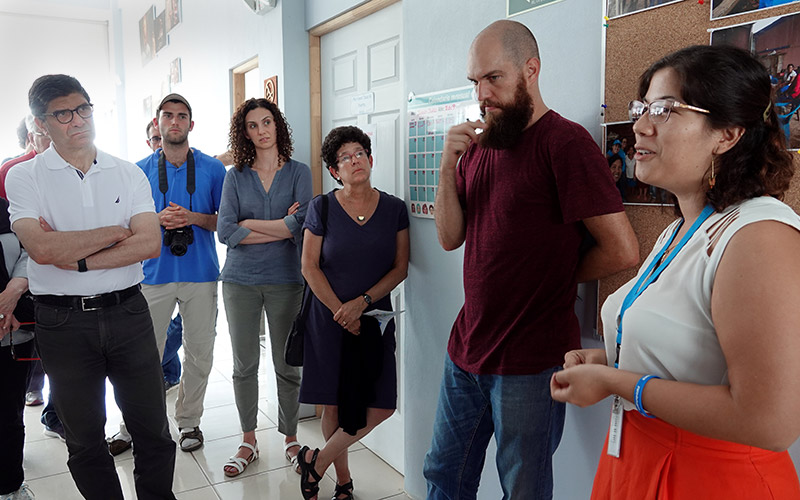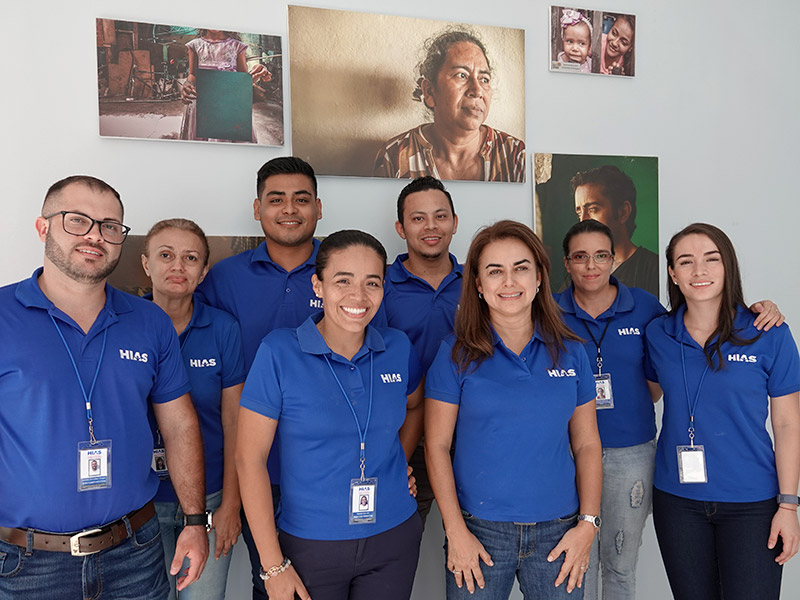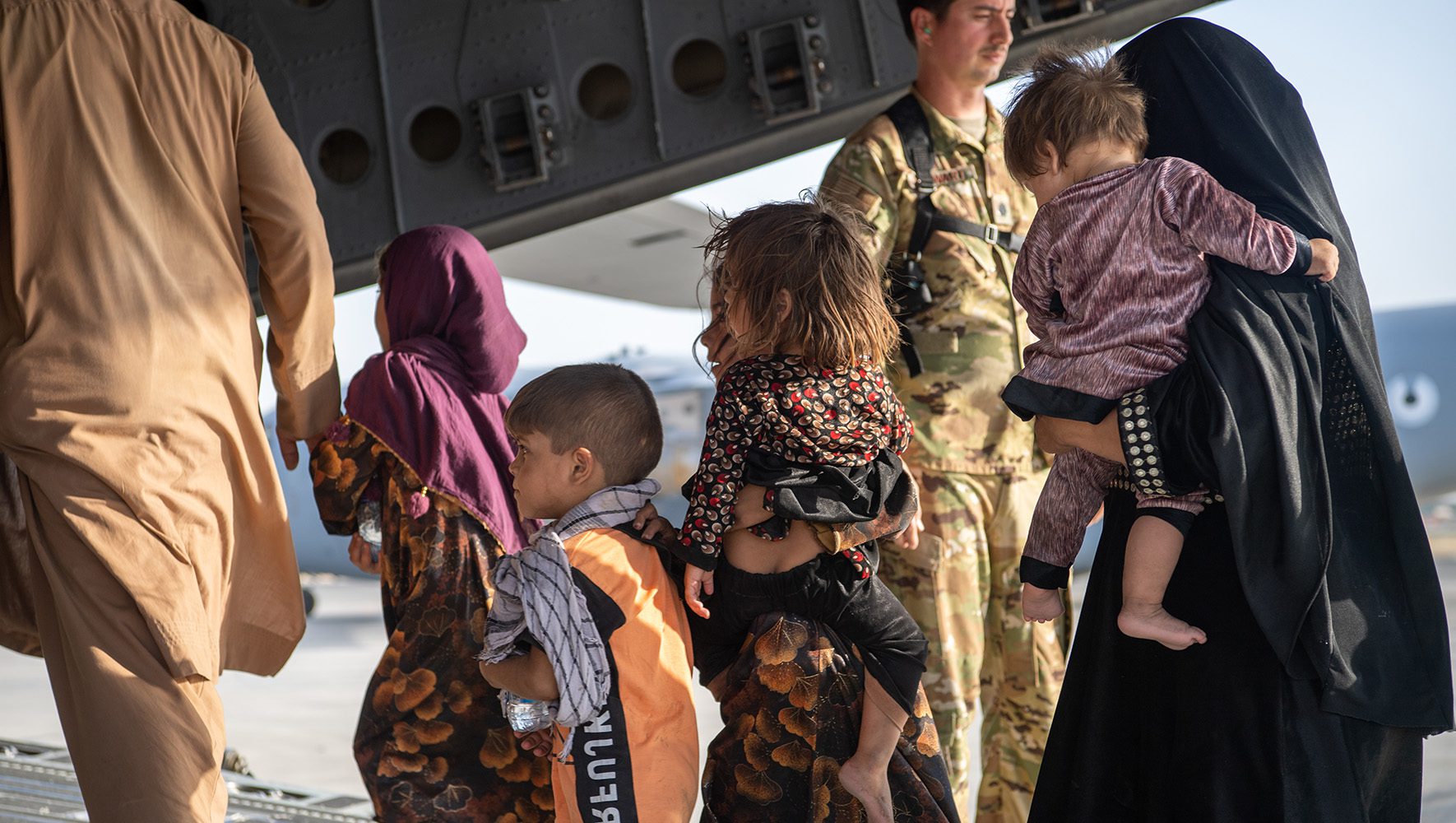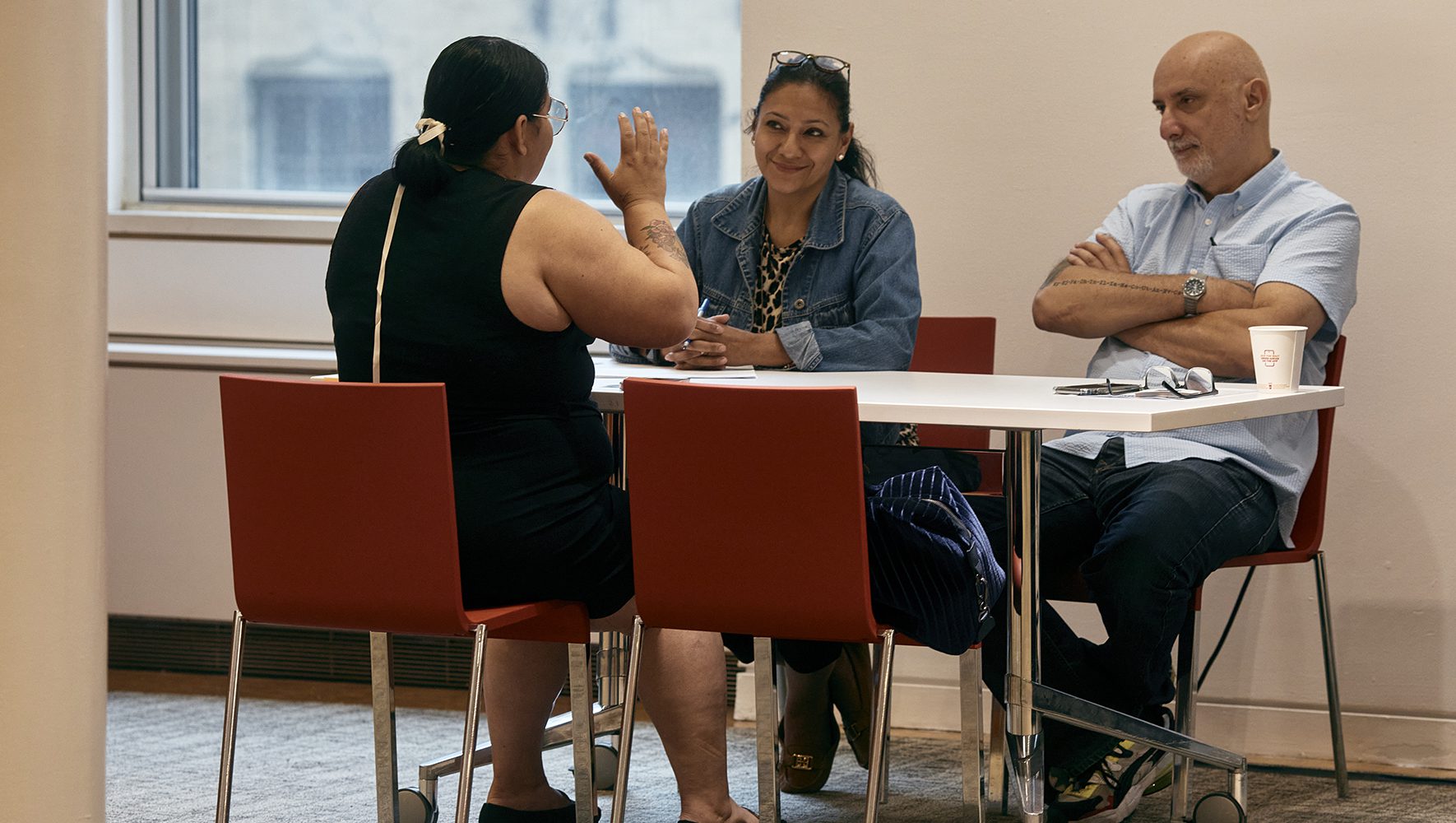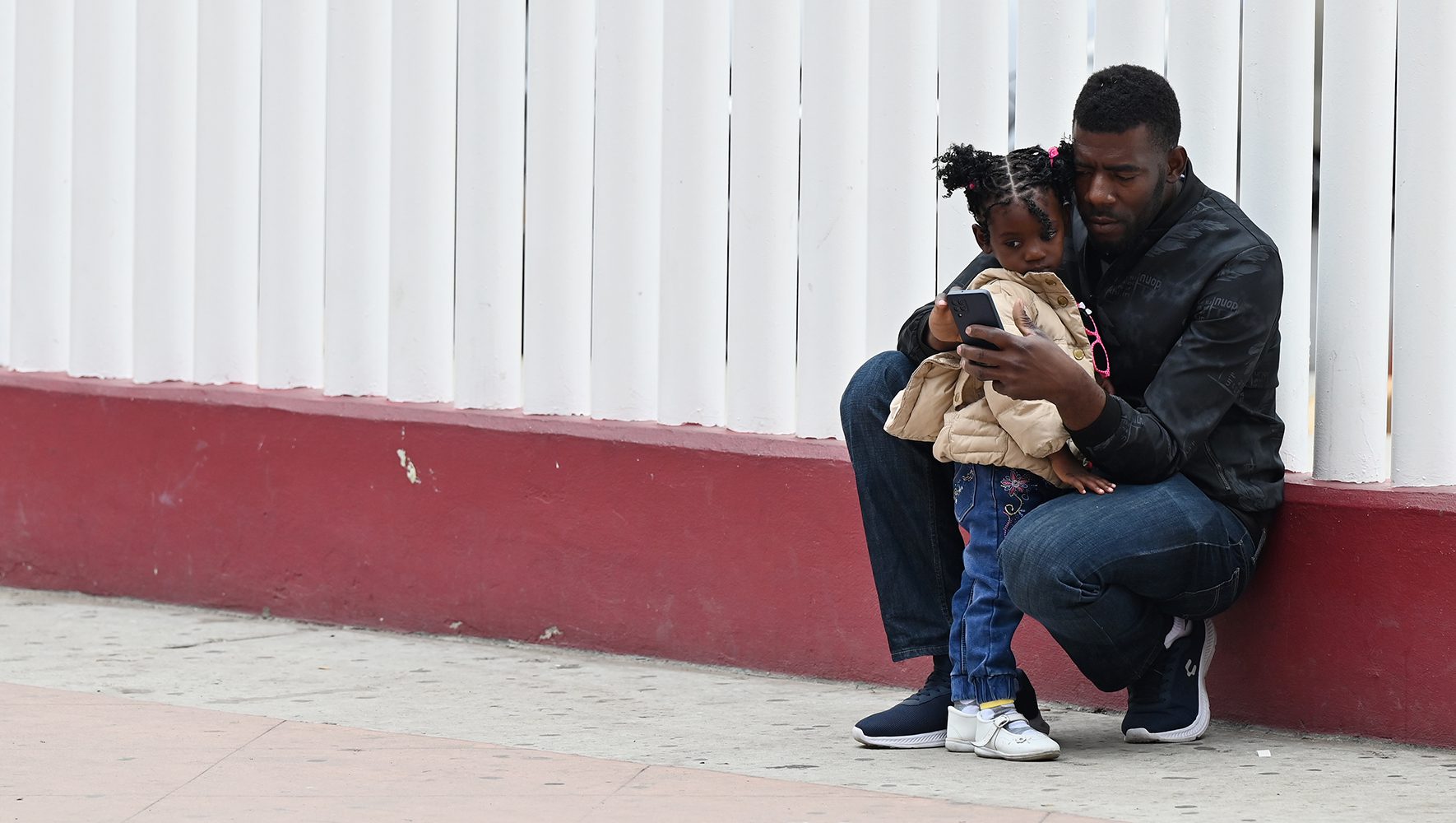Helping with Dignity in Costa Rica
By Julie Gersten, HIAS Board Member
Jul 02, 2019
As a member of the HIAS board of directors, I often think about what it means to stand with refugees, but I usually do so from behind an office computer or at a desk. Removed from daily interactions with refugees, unable to offer a direct ear or helping hand; how do I make decisions, offer suggestions and oversight that is responsive to the needs of individuals and families who face hardships I can only begin to imagine?
With that question in my mind, I traveled to Costa Rica with the HIAS Board in early June to see our work in action. In April 2018, the Nicaraguan government began a campaign of political repression against its citizens, and in the past year an estimated 62,000 people have fled for their lives, some 55,000 seeking refuge in Costa Rica. Standing at the border of Costa Rica and Nicaragua, we saw a steady stream of families, including young children, walking to safety— and learned that this flow includes farmers, students, former public officials, opposition figures, journalists, doctors, and human rights defenders.
The Nicaraguan government’s brutal crackdown is focused on anyone who participated in anti-government protests or assisted in the protest movement, and UNHCR officials told us that the majority of these individuals are campesinos—poor farmers—many of whom are illiterate and have had very little interaction with government institutions. For them, navigating the asylum process can be an almost insurmountable uphill battle. How do you process an asylum seeker who does not have a birth certificate or known address and who might not be able to write their name?
Fortunately, the government of Costa Rica is dedicated to the protection of human rights for refugees, and we met with several government officials, including supreme court justices, who have demonstrated a deep commitment to making Costa Rica safe and welcoming. Upon arrival, asylum seekers are provided access to services in Costa Rica, including healthcare, legal protection, and (after three months) work eligibility, while their asylum claim is in process. There is no detention or deportation.
HIAS is the government’s primary partner in providing legal protection for asylum seekers. HIAS operates offices across the northern and southern border as well as in Costa Rica’s capital, San Jose. The staff provides legal services and “know your rights” training to asylum seekers. They also work very closely with border patrol, government officials, and local communities near the borders to ensure that the rights of asylum seekers are respected and protected. Once asylum seekers are initially registered by the Costa Rican government, many are referred to HIAS for legal support in processing their claims.
During our tour of the country we visited several HIAS regional offices, and saw enclosed spaces where claimants can discuss the difficult details of their case with a lawyer in private; special areas and toys for children to play; prominent signage, and posters and pamphlets that detail the legal rights and process for individuals claiming asylum. We also saw how HIAS distributes water, food packages, and hygiene kits to meet the immediate needs of clients. Most important, we met the warm and committed Costa Rican HIAS staff, who every day demonstrate what it means to stand with refugees.
Providing support to refugees is not just about providing services. It is about providing services in a way that upholds the dignity and restores the humanity of individuals who have been persecuted simply because of who they are. To be forced to flee from your home and leave everything behind; to run or walk without knowing if you will be safe; to be stripped of the protection that belonging to your home community and country affords you; to feel that your persecution is a result of who you are, what you are, what you do: these experiences strip refugees of the anchors through which people everywhere define themselves.
One HIAS client described to us through tears: “The absence of legal status, the need to prove your persecution, you resign yourself to being a person without identity; a person just walking. When I received the contract from HIAS for legal representation, that was the first time I felt that I was believed. HIAS not only gave me legal advice, they suffered the process with me and that was powerful. They always had time to ask me about my emotions.”
In Costa Rica, I was reminded of the importance of warmth, care, and commitment. It is critical to ensure that those who provide help and protection are not just technically trained, but professionals who see the humanity, bravery, and resilience in each individual seeking support. I returned home feeling deeply proud to play a role in an organization that sees upholding the dignity of refugees as so central to its mission that it informs every detail of its operations—from office set-up to program design and staff hiring. From behind my desk, I know the best support I can provide to refugees is to stand with organizations like HIAS.
HIAS Board Member Julie Gersten lives in Southern California and is co-founder and director of Refugee Action Fund.


